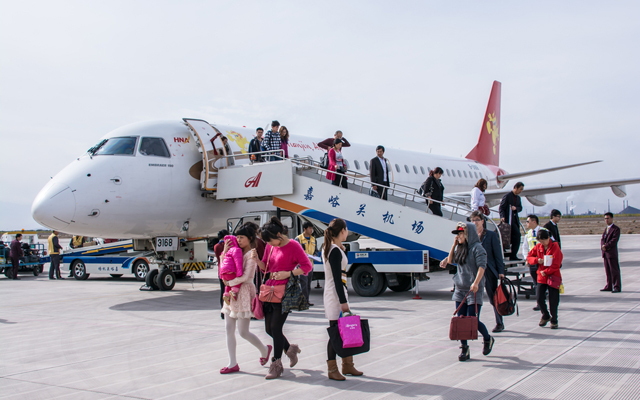As the Chinese authorities further loosen controls on airfares, travel industry players are expecting greater fluctuations on popular domestic routes as early as this summer.
Last December, the Civil Aviation Administration of China and the National Development and Reform Commission allowed Chinese carriers to set their own prices on a significantly larger number of routes.
According to BCD Travel, only 31 China air routes operated without price control in 2013. After the new ruling kicked in, the number jumped to 724 in 2017 and 1,030 this year.

More than giving airlines pricing control, a greater implication of the reform is that prices become subject to free market forces, BCD Greater China, managing director, Jonathan Kao, stressed.
Changes in airfares are “the result of many different factors including competition between different carriers flying the route, competition with high speed rail, and behavior changes – travellers booking earlier, choosing cheaper flights”, Kao explained.
Yet, Kao expects that airfare in China will continue to increase modestly in the near future, “consistent with the rise in prices in most categories of products/services in China”.
Kao noted that TMCs will play a role in procuring options most beneficial for his corporate travellers. “There is no evidence so far that the price reform will affect the demand for business and leisure travel. However, we do feel that forward-planning and travel policy controls will become more important.”
On the leisure front, Century Holiday International Travel Group, Shanghai branch, vice general manager, Frank Kao said the market has already been regulating itself by supply and demand without much government control.
While pricing varies between low and peak travel seasons, Kao said he has never encountered airlines charging above the ceiling of published rates.
“It’s hard to tell whether airfare will rise as it relates greatly to China’s economy. Based on big data and online websites (however), it seems economic prospects are not optimistic so there will be downward trend.”
A leisure travel agent in Beijing who spoke to TTG Asia on the condition of anonymity also expected lower airfares from Chinese carriers in the future as high-speed trains are increasingly seen as alternatives to flying.
The source remarked: “If one takes the train between Xi’an and Chengdu or through Guangxi area, the view from the window will be super nice. While if taking a flight, you worry about the airflow bumps all the time.”




















